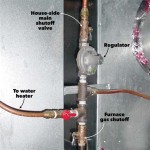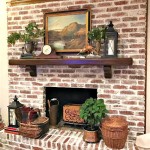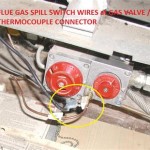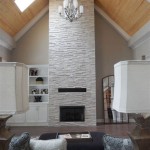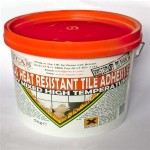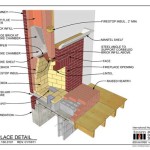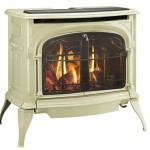Gas Fireplace Smells Like Mildew: Causes and Solutions
A gas fireplace offers a convenient and aesthetically pleasing source of heat for many homes. However, a persistent mildew-like odor emanating from the unit can be a cause for concern. This smell not only detracts from the ambiance but can also indicate underlying issues that require attention. Identifying the source of the smell is crucial to implementing effective solutions and ensuring the safe and efficient operation of the fireplace.
The presence of a mildew odor in a gas fireplace system is generally not directly related to the combustion of natural gas or propane. These gases, when burned correctly, produce primarily carbon dioxide and water vapor. The smell is typically associated with moisture accumulation and the subsequent growth of mold, mildew, or other organic matter within various components of the fireplace or its surrounding environment.
Understanding the Sources of Moisture
The most common culprit behind a mildew smell is moisture. Several factors can contribute to moisture accumulation within a gas fireplace system. One primary cause is improper ventilation. If the fireplace flue or venting system is blocked or restricted, the water vapor produced during combustion will not be adequately exhausted. This trapped moisture creates a humid environment conducive to mold and mildew growth, particularly in areas with poor air circulation.
Another potential source of moisture is leaks. External leaks in the chimney, roof, or surrounding walls can introduce rainwater into the fireplace structure. Even small leaks can contribute to significant moisture build-up over time. Additionally, condensation can form within the chimney, especially if it is not properly insulated. This condensation can then drip down into the fireplace, providing a constant source of dampness.
Furthermore, high humidity levels in the surrounding environment can exacerbate the problem. Basements or other areas with naturally high humidity can contribute to moisture accumulation within the fireplace, particularly if the unit is not frequently used. Seasonal changes, such as increased rainfall or snowmelt, can also lead to temporary increases in humidity and moisture levels near the fireplace.
Identifying Potential Locations of Mold and Mildew
Pinpointing the exact location of the mold or mildew growth is essential for effective remediation. The fireplace's internal components, such as the firebox, burner assembly, and logs, are potential areas for infestation. The firebox, in particular, can provide a dark, humid environment that encourages microbial growth. The burner assembly, especially if made of porous materials, can absorb moisture and provide a breeding ground for mold. The decorative logs, often made of ceramic or other absorbent materials, can also harbor mold and mildew.
The venting system, including the flue and chimney, is another critical area to inspect. Moisture can condense within the venting system, leading to mold growth on the interior surfaces. Blockages in the venting system, such as bird nests or debris, can further trap moisture and exacerbate the problem. In cases where the gas fireplace is directly vented through a wall, the vent pipe and surrounding wall cavity should be inspected for signs of moisture damage and mold growth.
The surrounding structure of the fireplace, including the hearth, mantel, and surrounding walls, can also be affected. If moisture penetrates the walls or floor near the fireplace, it can lead to mold growth on these surfaces. Stains, discoloration, or a musty odor emanating from these areas are indicators of potential moisture damage and mold growth.
Remediation and Prevention Strategies
Addressing a mildew smell requires a multi-faceted approach that includes cleaning, ventilation improvement, and moisture control. The first step is a thorough cleaning of the affected areas. This may involve removing loose debris, scrubbing surfaces with a mold-killing solution, and allowing the area to dry completely. When cleaning, it's crucial to wear appropriate protective gear, such as gloves and a mask, to prevent exposure to mold spores.
Improving ventilation is crucial to prevent future moisture accumulation. A professional inspection of the venting system should be conducted to identify and address any blockages or restrictions. Proper insulation of the chimney can also help reduce condensation. Ensuring that the fireplace damper is properly sealed when the unit is not in use can also help prevent drafts and moisture intrusion.
Controlling moisture levels in the surrounding environment can further reduce the risk of mold growth. This may involve using a dehumidifier to lower humidity levels in the room, repairing any leaks in the roof or walls, and improving drainage around the foundation of the house. Regular inspection and maintenance of the fireplace and its surrounding structure are essential for early detection of moisture problems and prompt remediation. The area should be monitored periodically for recurrence of the smell or any signs of moisture damage.
In cases of severe mold infestation, it may be necessary to consult with a professional mold remediation specialist. These professionals have the expertise and equipment to safely and effectively remove mold and address underlying moisture problems. They can also conduct air quality testing to assess the level of mold contamination and ensure that the remediation process is successful.

Six Reasons Why Your Fireplace Smells Bad We Love Fire

How To Get Rid Of Fireplace Smell Vertical Chimney Care

Six Reasons Why Your Fireplace Smells Bad We Love Fire

Gas Fireplace Leak Symptoms What To Watch Out For Dreifuss Fireplaces

Gas Fireplace Leak Symptoms What To Watch Out For Dreifuss Fireplaces

Gas Fireplace Leak Symptoms What To Watch Out For Dreifuss Fireplaces

Gas Fireplace Inspection Smell Moisture In Il

Gas Fireplace Leak Symptoms What To Watch Out For Dreifuss Fireplaces

Why Does My Fireplace Smell Full Service Chimney

Gas Fireplace Leak Symptoms What To Watch Out For Dreifuss Fireplaces

